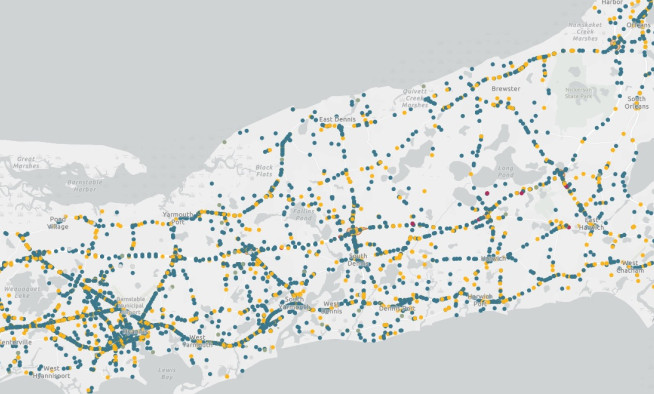OneCape 2023: Bold ideas to address our region's housing crisis
Collaboration, regional planning, bold and new thinking: strategies to address the region’s housing affordability and availability issues took center stage during OneCape 2023.
“How can zoning be used to create more equitable communities?” asked Sara Bronin, a professor at Cornell University and founder of the National Zoning Atlas, designed to help communities across the country better understand and streamline complex zoning regulations to encourage smarter growth and development. With a better understanding of our zoning , we may be able to remove roadblocks that make it difficult to build new housing and in turn, prevent beneficial growth or redevelopment in our communities. Other communities have used the zoning atlas to advocate for accessory dwelling units, create smarter zoning around transit uses, and inform guidebooks and other helpful communication tools.
Nolan Gray of California YIMBY and Allison Thurmond Quinlan of Flintlock Architecture presented bold strategies to increase affordable housing that are being implemented across the country. To combat the housing crisis, Gray said that communities must examine outdated zoning laws and regulatory hurdles that are often barriers to developing attainable housing. “We need to have conversations about allowing the missing-middle, starter-home types that will keep our communities affordable,” said Gray. Both called for thoughtful, incremental changes to zoning and local codes to allow for village centers that include diverse housing and a range of mixed-use formats. “We must collectively become comfortable with density in intentional locations with clear boundaries,” Quinlan said, “and help facilitate the types of development we want in the locations that make the most sense.”
George Ruther, housing director for Vail, Colorado, joined us on the OneCape stage for the second year in a row to continue conversations about the successful, innovative programs Vail has utilized to increase year-round housing. This includes a deed-restriction program that has provided year-round homes for nearly 400 Vail residents, and an upcoming public-private partnership to construct nearly 300 new housing units. "We needed a fundamental shift in the conversation about the role of the local government," Ruther said, "switching from a regulator to a facilitator, helping to work together towards an intended outcome."
Secretary Edward Augustus of the Executive Office of Housing and Livable Communities kicked off day two. "Massachusetts is facing a housing crisis. It is unique how it impacts the Cape, but it is true across the Commonwealth,” he said. Secretary Augustus is the first cabinet member dedicated solely to housing in more than thirty years. “At this moment in history, the Governor understands that it is critical that there be a cabinet secretary fighting for resources for the housing needs of the Commonwealth.”
Augustus announced that the recently passed state budget includes increased funding for several state-wide housing programs and he is working to identify surplus state assets that could be introduced to the market to provide opportunities for affordable housing and fast-track the process to make those assets available.
Jonathan Berk, vice president of growth and partnerships with Mainvest, challenged the audience to “question everything” and rethink the ways we plan for housing, streetscapes, transportation, and even seasons to encourage economic growth and vibrant communities, including encouraging more density and walkable neighborhoods. “One in two Americans want to live in a walkable neighborhood,” said Berk, “but only about 1 in 12 are available to do so.”
Kristy Senatori and Commission Chief Planner Chloe Schaefer provided an update on the Regional Housing Strategy, an initiative to address the region’s housing affordability and availability issues. Senatori noted that stakeholders agree that focusing on affordability and attainability for Cape Cod’s year-round residents is paramount. Schaefer provided further details on work to examine strategies that deal with design, support those seeking housing, zoning changes, education and partnerships, and funding programs.
Implementation of the Regional Housing Strategy requires a multifaceted approach. Its recommendations will support strategies applicable on different scales and implemented by numerous actors that will reflect our fifteen communities' common and unique needs to ensure that it is truly a strategy for Cape Cod.
Video and presentations from plenary and breakout sessions are available at: onecape.capecodcommission.org
Related Posts




